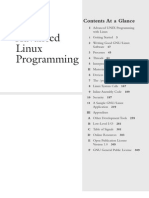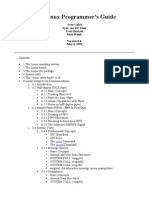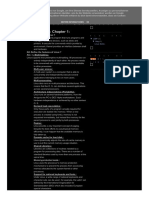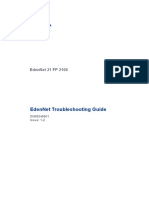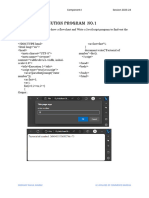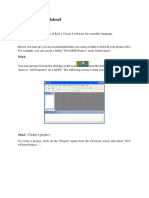0% found this document useful (0 votes)
7 views5 pagesProcess Linux
The document outlines various essential functions in Linux, categorized into system calls, file management, process management, memory management, network programming, user management, inter-process communication, thread management, signal handling, and device management. Each category includes key functions that facilitate system control, resource management, and efficient communication. Understanding these functions is crucial for optimizing system performance and developing robust applications in Linux.
Uploaded by
Rehan ZahidCopyright
© © All Rights Reserved
We take content rights seriously. If you suspect this is your content, claim it here.
Available Formats
Download as DOCX, PDF, TXT or read online on Scribd
0% found this document useful (0 votes)
7 views5 pagesProcess Linux
The document outlines various essential functions in Linux, categorized into system calls, file management, process management, memory management, network programming, user management, inter-process communication, thread management, signal handling, and device management. Each category includes key functions that facilitate system control, resource management, and efficient communication. Understanding these functions is crucial for optimizing system performance and developing robust applications in Linux.
Uploaded by
Rehan ZahidCopyright
© © All Rights Reserved
We take content rights seriously. If you suspect this is your content, claim it here.
Available Formats
Download as DOCX, PDF, TXT or read online on Scribd
/ 5


































